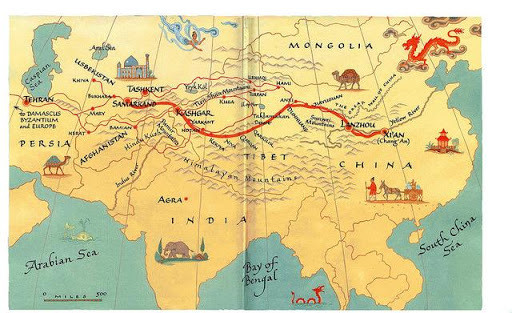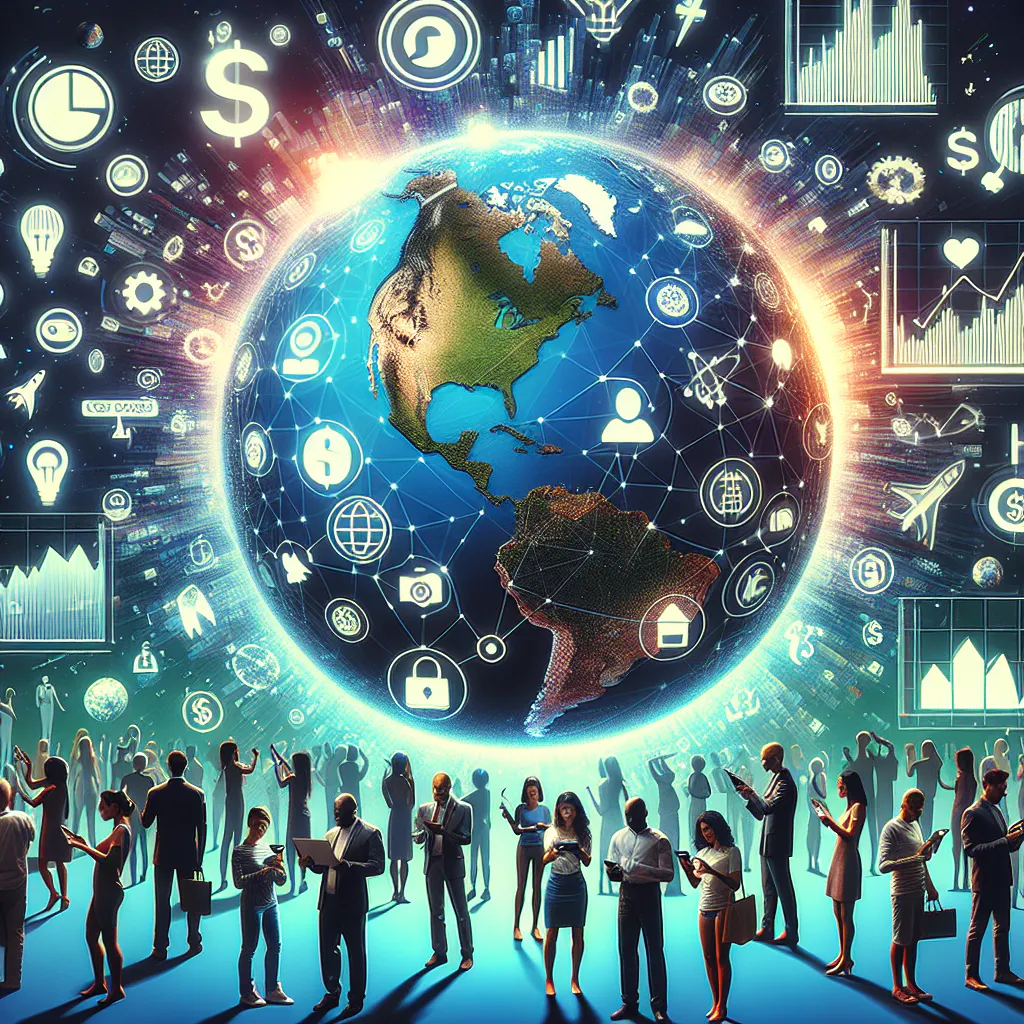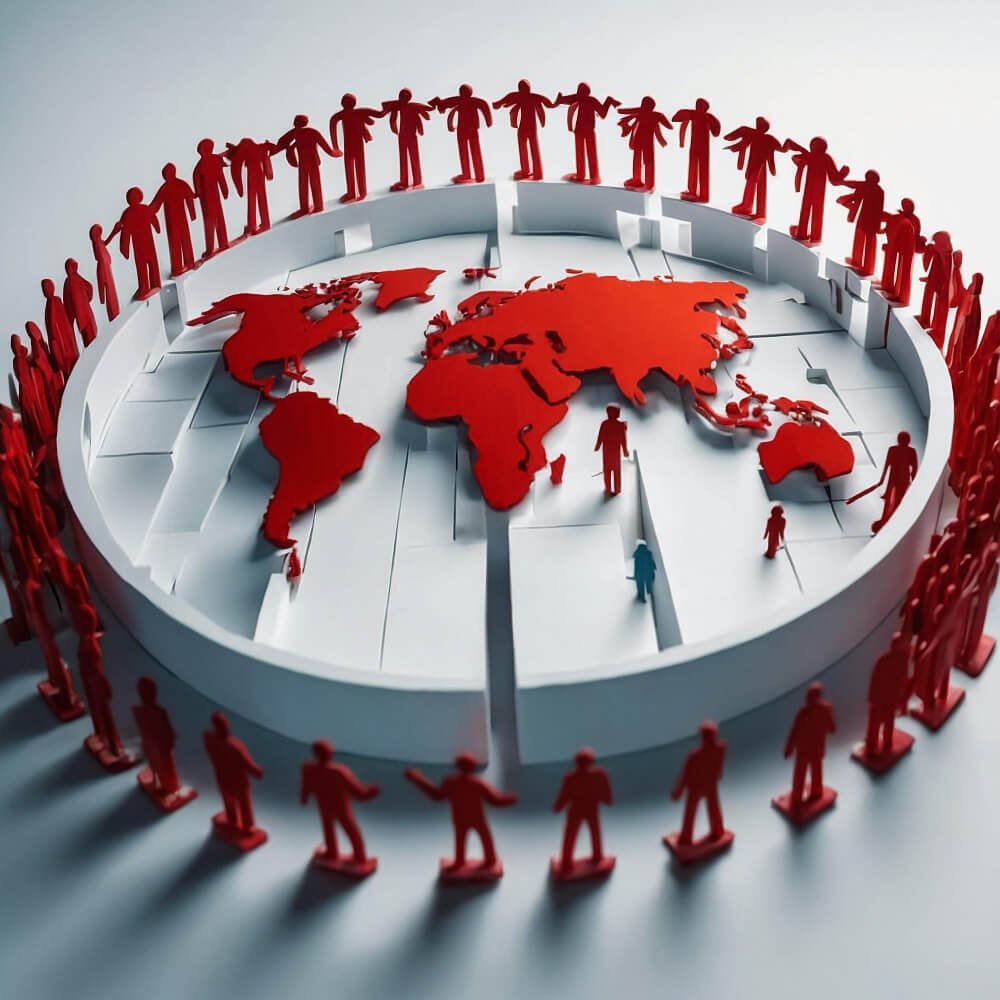"The Role of Global Institutions in Political Globalization"
Political globalization refers to the growing interconnectedness of political systems worldwide, fueled by advancements in communication, trade, international institutions, and global governance. As national boundaries become increasingly porous, governments and political systems collaborate, influence, and respond to one another. This phenomenon is reshaping policies, institutions, and alliances on an unprecedented scale, transforming the global political landscape.
This article delves into the concept of political globalization, its historical evolution, key drivers, impacts, benefits, challenges, and prospects for the future.
What is Political Globalization?
Political globalization is the process by which political ideas, norms, and systems spread and integrate across national borders. It emphasizes collaboration and coordination among nations to address global challenges that transcend individual countries, such as climate change, terrorism, human rights, and economic stability.
Key Components of Political Globalization
- Global Governance: Establishing international organizations like the United Nations (UN), World Trade Organization (WTO), and International Criminal Court (ICC) to manage global issues.
- International Laws and Agreements: Adopting treaties and conventions that bind nations to collective actions.
- Diplomatic Networks: Expanding bilateral and multilateral diplomatic efforts to tackle global challenges.
- Civil Society and Non-State Actors: Increasing influence of global non-governmental organizations (NGOs), transnational corporations (TNCs), and advocacy networks.
Historical Evolution of Political Globalization
The journey of political globalization spans centuries and has been shaped by significant milestones:
1. Ancient Empires and Trade Routes
Political globalization dates back to ancient civilizations like Rome, Persia, and China, which established extensive trade networks and administrative systems. The Silk Road not only facilitated commerce but also fostered cultural and political exchanges between regions.
2. Colonialism and Imperialism
The European colonial era expanded political globalization through the creation of global empires. Colonial powers imposed their governance systems, administrative structures, and ideologies on colonized regions, establishing a hierarchical global order.
3. World Wars and the League of Nations
The devastation of World War I (1914–1918) prompted efforts to foster international cooperation. The League of Nations, founded in 1920, marked a significant step toward global governance, despite its limited effectiveness and eventual dissolution.
4. Post-World War II and the United Nations
The aftermath of World War II saw the establishment of the United Nations (UN) in 1945, a pivotal moment in political globalization. The UN became a platform for dialogue and collaboration, addressing issues such as peacekeeping, human rights, and sustainable development.
5. Cold War and Regional Alliances
During the Cold War (1947–1991), political globalization manifested through competing alliances such as NATO and the Warsaw Pact. While ideological divides persisted, multilateral institutions grew in importance, emphasizing the need for collaboration in addressing global issues.
6. Post-Cold War and the Modern Era
The fall of the Soviet Union (1991) accelerated political globalization. The spread of democratic ideals, the rise of international institutions, and the advent of the internet facilitated cross-border political engagement.
Key Drivers of Political Globalization
1. Technological Advancements
Technological breakthroughs like the internet, satellite communication, and modern transportation have made global interactions faster and more efficient. Political leaders, activists, and organizations now connect instantly, spreading ideas and fostering international movements.
2. Economic Interdependence
Globalized trade and investment have created economic interdependence among nations, necessitating coordinated political actions to address trade disputes, financial crises, and economic inequalities.
3. Global Challenges
Issues such as climate change, pandemics, and terrorism transcend national borders, requiring nations to cooperate through international agreements and institutions.
4. Rise of International Institutions
Organizations like the UN, International Monetary Fund (IMF), and World Health Organization (WHO) play critical roles in shaping global policies, resolving conflicts, and fostering cooperation.
5. Influence of Non-State Actors
Global NGOs, advocacy networks, and multinational corporations are key players in political globalization, influencing policy, advocating for human rights, and driving sustainable development initiatives.
Impacts of Political Globalization
1. Strengthened Global Governance
Political globalization has facilitated the establishment of international frameworks to address global challenges, such as:
- Climate Agreements: The Paris Agreement (2015) united nations in combating climate change.
- Peacekeeping Missions: The UN deploys peacekeeping forces to conflict zones, fostering stability.
2. Spread of Democratic Ideals
Political globalization has promoted democracy through organizations like the European Union (EU) and the Organization for Security and Cooperation in Europe (OSCE), which monitor elections and support democratic reforms.
3. Enhanced Human Rights Protections
International treaties like the Universal Declaration of Human Rights (1948) have advanced global norms on human rights. Activists utilize international platforms to expose abuses and advocate for justice.
4. Regional Integration
Political globalization has fostered regional alliances such as the EU, African Union (AU), and Association of Southeast Asian Nations (ASEAN). These organizations enhance regional stability, economic integration, and political cooperation.
5. Influence on National Policies
Global norms influence domestic policies, particularly in areas like environmental regulations, labor rights, and gender equality. Nations adopt international standards to align with global expectations.
Challenges of Political Globalization
1. Erosion of Sovereignty
Critics argue that political globalization undermines national sovereignty, as international organizations often influence or override domestic policies.
2. Inequality in Representation
Developing nations frequently lack equitable representation in global decision-making processes. Institutions like the UN Security Council and IMF are often criticized for favoring powerful nations.
3. Cultural Homogenization
The dominance of specific political ideologies can marginalize diverse cultural and political perspectives, leading to cultural homogenization.
4. Rise of Populism and Nationalism
Backlash against globalization has fueled populist and nationalist movements. Leaders who emphasize prioritizing national interests often challenge global cooperation.
5. Limitations in Conflict Resolution
Despite the presence of international mechanisms, geopolitical conflicts like the Syrian civil war and the Russia-Ukraine crisis highlight the limits of global governance in achieving peace.
Future Prospects of Political Globalization
1. Technology and Political Engagement
Emerging technologies such as artificial intelligence, blockchain, and social media will continue to influence political globalization. However, concerns about misinformation, cybersecurity, and digital authoritarianism must be addressed.
2. Climate and Sustainability
Political globalization will be instrumental in combating climate change. Strengthening international governance frameworks to enforce commitments and promote green technologies will be crucial.
3. Multipolar World Order
The rise of powers like China, India, and Brazil signals a shift toward a multipolar world. Political globalization will need to adapt to diverse leadership styles and priorities.
4. Strengthening Regional Organizations
Regional alliances are likely to grow in influence, addressing localized issues while complementing global governance structures.
5. Inclusive Global Governance
Efforts to democratize international institutions and empower marginalized voices will shape the future of political globalization. Ensuring equity and inclusivity will enhance legitimacy and effectiveness.
Conclusion
Political globalization is a complex and inevitable phenomenon that has reshaped the modern world. It promotes collaboration, addresses global challenges, and fosters shared norms and values. However, it also raises concerns about sovereignty, representation, and cultural diversity.
Striking a balance between global cooperation and preserving national identity is essential for navigating the complexities of political globalization. By embracing inclusivity, innovation, and resilience, the world can leverage political globalization to build a more equitable, sustainable, and peaceful future.




